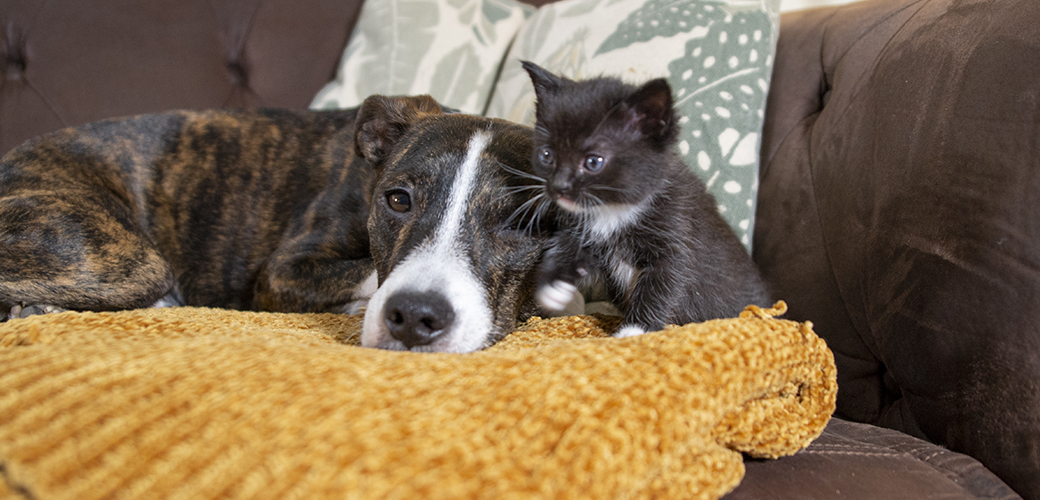

Kitten season is just around the corner! And with many people being home more often, some have decided to take the leap and add in a new furry friend—both canine and feline—to their homes. Bringing a new pet home can be very exciting, but it’s a big responsibility. It’s important to remember that animals explore new environments thoroughly, and often using their mouths.
In order to keep your new pet safe, the ASPCA Animal Poison Control Center (APCC) encourages you to go through this quick checklist before bringing your puppy or kitten home.
- Houseplants – Remove any poisonous plants or put them in an area that your new furry friend cannot get to.
- Medications – All medications should be in an enclosed cupboard out of paw’s reach. Try to get into the habit of taking medications in the same spot every day and putting them away when you’re done. Many pets become exposed to pharmaceuticals by finding dropped pills on the ground.
- Pesticides – Any insecticide or rodenticide baits should be removed if they are on ground level. Keep in mind that while bait stations are often labelled as “pet-resistant”, this does not mean that they are pet-proof. Baits commonly contain delicious attractants that appeal to dogs and cats just as much as rodents and insects.
- Countertops – A motivated pet will usually find a way to get any prizes on the countertop if they know they are up there. Don’t leave any food items, medications, cleaning supplies or candles on the counter.
- Garbage cans – Any garbage can in your new pet’s environment should be kept covered or stored where they cannot find it.
- Cleaning supplies – All household cleaners and laundry detergents should be kept in an enclosed environment, inaccessible to pets.
- Children’s toys – Dogs especially have been known to readily eat small toys which can cause an intestinal blockage. Keep an eye on your child’s toys while they are playing with them and once they’re finished, make sure they are picked up and away from snooping noses.
- Candles – It’s really easy for a wandering tail to accidentally knock over a candle and burn your pet or set fire to the home. Relocate any candles that may be easily tipped over or are at tail-level.
- Windows – Make sure any windows that open have a lock and contain a screen. Pets are extremely curious and may want to smell all the smells of the outside world. Keep them safe by keeping a screen on the window.
- Cords & Curtains – Cats especially love to play with long dangling things like electrical cords and curtain pulls. They may also attempt to climb long draperies that pool on the floor. Keep these items up and off the floor so playful pets don’t find themselves in danger.
- Lawn & Garden – Consider removing any poisonous plants in the landscape. Pick up or relocate any rodenticides or insecticides that have been put out, even if they are very old.
Not only will your house be kitten and puppy proofed with this checklist, an added bonus is that it will help keep your home tidy! Congratulations on your new furry friend, and good luck!
If you think your pet has potentially ingested something toxic, please contact your veterinarian or the ASPCA Animal Poison Control Center 1-888-426-4435 immediately.
Source: Read Full Article